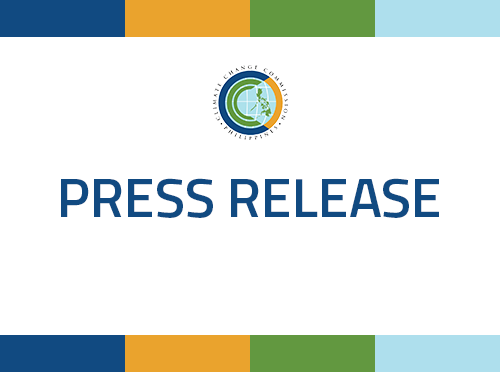
February 22, 2018 Thursday

February 22, 2018. Providing a better understanding on the dynamics and impacts of climate variability and weather extremes to local communities is critical to mainstreaming climate action in national development planning.
However, in this era of climate change and big data, risk information in the country remains scarce and small—a big hurdle on developing risk-based policies and actions.
In line with the government’s efforts to address this shortage, the Climate Change Commission (CCC) and the Oscar M. Lopez (OML) Center released the 2017 Philippine Climate Change Assessment: Impacts, Vulnerabilities and Adaptation last February 21.
Authored by Filipino Intergovernmental Panel for Climate Change members and other leading scientists and experts, the report centered on the assessment of the current understanding of climate impacts, vulnerabilities, and adaptation on vital areas such as ecosystems, freshwater resources, coastal systems and low-lying areas, agriculture and fisheries, and human health.
“Climate change is one of the major drivers of disaster risks alongside poverty, rapid urbanization and unsustainable pattern of development. The second climate change assessment report provides us the necessary information on how we can build our communities’ resilience to climate impacts,” CCC Vice Chair and Secretary Emmanuel M. de Guzman said.
This report is the second among the three-volume Philippine Climate Change Assessment series following the release of the 2016 Philippine Climate Change Assessment: The Physical Science Basis last year, which synthesized scientific information from international and local literature in order to provide an assessment of climate change for the Philippines.
Both the 2016 and 2017 assessment reports are available at the CCC website via the following links:
The third assessment report, which will focus on the mitigation of climate change, will be published later this year.